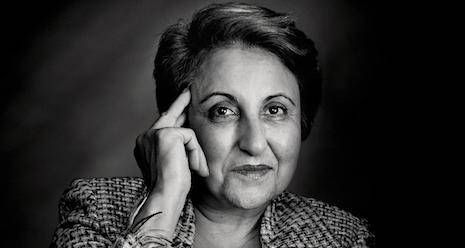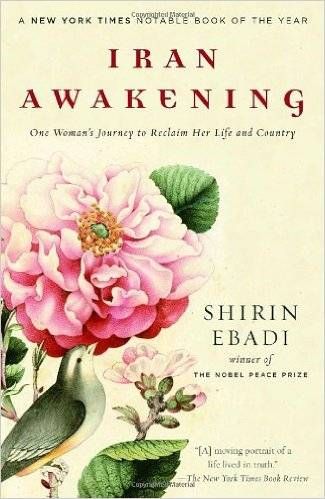
5 Lessons in Civic Responsibility We Can Learn From Shirin Ebadi
Judge, lawyer, human rights activist, Noble Peace prize recipient, writer, mother – Shirin Ebadi has done it all. Although she initially supported the Islamic Revolution of 1979, she soon found herself its victim, losing her judgeship, freedom of expression, numerous rights, and even country. For decades, she has fought to give the voiceless of Iran a platform, risking government persecution and jail time to do so. She is one of the strongest women I’ve had the privilege to meet (in writing, unfortunately) and a true role model.

- Do not work against your own interests, even it’s for “the greater good.”
In the 1970s, Shirin was an outspoken pro-revolutionary who cheered the fall of Shah Mohammad Reza Pahlavi and the arrival of Ayatollah Khomeini, the man who would dramatically alter the course of Iran’s political history. She repeatedly brushed off concerns that Khomeini would enact strict laws against women or that his conservative faith could hamper Iran’s progressiveness. It was a complete shock – even a betrayal – when she began to lose her rights and the Iranian judicial system she had studied became little more than a puppet court for enacting petty revenge. Shirin never regrets doing her part to oust the Shah, but she is critical of how blind she was to the warning signs that Khomeini would not help her or other women. - Voting is not enough – we must be active participants in the political process.
In 1997, Seyyed Mohammad Khatami won the Iranian Presidency to great acclaim. People were hopeful that his reformist platform would engender a loosening of censorship, restoration of rights, and a return to progressiveness. However, their expectations were too high and their understanding of the President’s circumscribed powers was faulty, leading to widespread dissatisfaction when he alone couldn’t revolutionize the country (which in turn helped bring in a corrupt President in 2005, Mahmoud Ahmadinejad). As Shirin said in Iran Awakening, “In voting for Khatami, [the people] believed they had done their part, and they settled back in a haze of moony adoration, waiting for him to transform Iran into the paradise of their imagination.” It did not happen. - Censorship prevents the full exchange of knowledge and should be condemned.
In her books, Shirin noted how, whenever the regime became more conservative, it would crack down on the free press, ensuring that news stories were published to fit the official narrative or that certain web sites could not be accessed from Iran. This led to widespread ignorance and fear and prevented the world from understanding what was truly happening in Iran. However, other nations such as the US were complicit in this censorship. Prior to 2004, the US prohibited Iranian writers from publishing and being published in the US – at least until Shirin Ebadi and other groups filed a lawsuit against the Treasury Department, forcing it to lift most restrictions and helping facilitate relations between the two countries. This has led to a thawing in the decades-old standoff. - We have a personal responsibility to help those in need, even if it might harm our families and us.
During her life, Shirin came into constant conflict with the Iranian government. She was harassed at home, in her office, and on the street. The government ordered “bodyguards” to follow her around and spy on her. They bugged her home and office and shut down her organizations for no real reason. In 2000, she was arrested and jailed. In 2009, her assets were seized, and she was effectively exiled from her country. Throughout all of this, she refused to stop trying to help others and encouraged her friends and family to be strong too. She believed (and continues to believe) that she was needed to help her fellow citizens and that there was no punishment she could receive that would prevent her from doing her best.
When Shirin lost her judgeship and became a clerk, she thought her career and her purpose were over. She grew depressed and irritated and was driven to distraction with boredom and wounded pride. However, she eventually started practicing law again, taking on pro bono work such as helping a family who was going bankrupt paying for the execution of their daughter’s rapist and defending political prisoners. Due to the corrupt nature of the courts, she did not usually win. That did not stop her, and by taking on case after case, speaking to domestic and foreign journalists, and working each and every day, she helped bring international attention to the human rights violations in Iran. Eventually, she became the first Muslim woman to win the Nobel Peace Prize in 2003, an award that allowed her to found more organizations, hire more staff, and take on more cases.
If you would like to learn more about Shirin and her work, I absolutely recommend reading her books, especially Iran Awakening and Until We Are Free. They can be difficult reads, but they’re certainly worth your time.

















